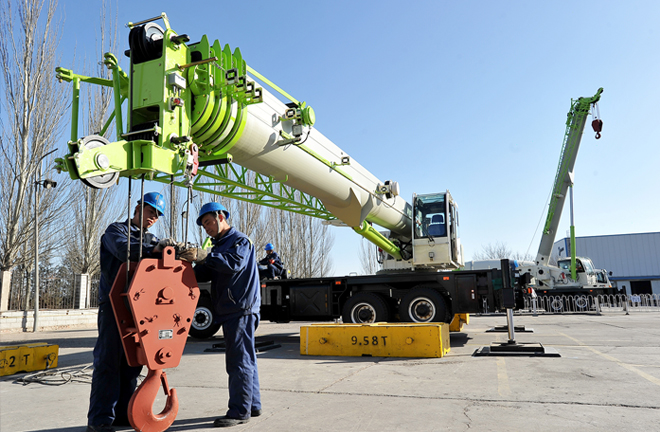RCEP’s soft law rules about government procurement

Workers check accessories of special machinery in Xuanhua Economic Development Zone, where the equipment will be exported to RCEP countries. PHOTO: Chen Xiaodong/CNS
As the largest free trade agreement, the Regional Comprehensive Economic Partnership (RCEP)’s entry into force and implementation has drawn extensive attention from many sectors. However, most attention is focused on high-level market access commitments made by RCEP members, which will foster regional and even global economic growth. Other relevant content, such as the 16th Chapter of RCEP—Government Procurement, which contains only soft-rule frameworks and institutional arrangements, has largely been neglected.
In fact, there are only eight articles included in the 16th Chapter. Mainly limited to rules about transparency and cooperation principles, they do not have specific binding effects. However, such managerial concepts have an effect as models, which can play a role in guiding an increasingly open international government procurement market.
Unwillingness to join GPA
Government procurement, as an important part of the national economy, usually accounts for 10%-15% of a country’s GDP. Therefore, the large-scale global government procurement market means numerous business opportunities and huge potential to foster the global economy and trade. As such, it has attracted more and more attention from other countries and international organizations.
This is also the reason why the World Trade Organization (WTO) attaches so much importance to the issue of government procurement. A multilateral trade deal, the Government Procurement Agreement (GPA) was also specially passed by WTO to advocate fair competition and free trade. But for many years, most contracting parties to the GPA, except for a few developing countries, are traditional developed economies. Many other WTO members, even some developed economies, have not shown much interest in joining the GPA.
GPA has been known informally as the famous “rich-country club” within WTO’s framework. The new GPA text added many flexible provisions in 2012, one of the important purposes of which is to attract the accession of more developing economies, and even the least developed economies. However, progress in this regard has actually been very slow. Among the BRICS countries, which draw most attention from GPA contracting parties, only China is actively seeking accession negotiations. Most other developing countries still retain their government procurement market as an effective tool to support their own industries and are less willing to join the GPA.
Soft rule-based framework of RCEP
In view of the sensitivity of government procurement trade itself, it is very difficult for developing countries to accept such a strongly binding legal rule framework. Therefore, Asia-led free trade agreements in the past usually excluded provisions about government procurement. Especially when the external international environment deteriorates, or the national economy encounters major meltdowns, support requests from domestic industries for government procurement policies which protect the domestic market will increase sharply.
In this sense, it is of great and special significance that the RCEP adopts a soft rule-based framework that allows state participants whose national conditions differ vastly from each other to agree on the inclusion of a chapter on government procurement. RCEP members include both developed countries and developing countries, such as Cambodia, Laos, and Myanmar.
Given the huge differences in economic systems, development levels, size and scale among member countries, the RCEP provides an institutional framework for government procurement that accommodates different economic levels, political, and legal environments in a non-mandatory manner. It also serves as an important reference for other countries in formulating relevant economic and trade laws.
It is already not easy to bring the sensitive issue of government procurement into the negotiating framework, and it may take years to put forward and reach an agreement on a hard law, which accompanies the high cost of governance and great possibility of failure. Therefore, inclusiveness and flexibility are needed for an improved governance model. International soft laws have relatively simple procedures of conclusion and flexible forms, and by introducing a set of substantive behavioral codes that are not formally legally binding, they can exert real influence on different sides involved in the cooperation.
As RCEP member countries are mostly countries along the Belt and Road (B&R) initiative’s route, this model has a great reference and sample value for China, as it seeks to promote the system of international rules along the B&R route in the future. On the basis of considering the concerns and appeals of different sides, the international government procurement standard can be gradually exported to the majority of developing countries where procurement systems are not yet improved, especially the B&R region. In this way, the overall business environment along the route can be enhanced.
Guo Chenglong is from the Business School at the Renmin University of China.
Edited by BAI LE
